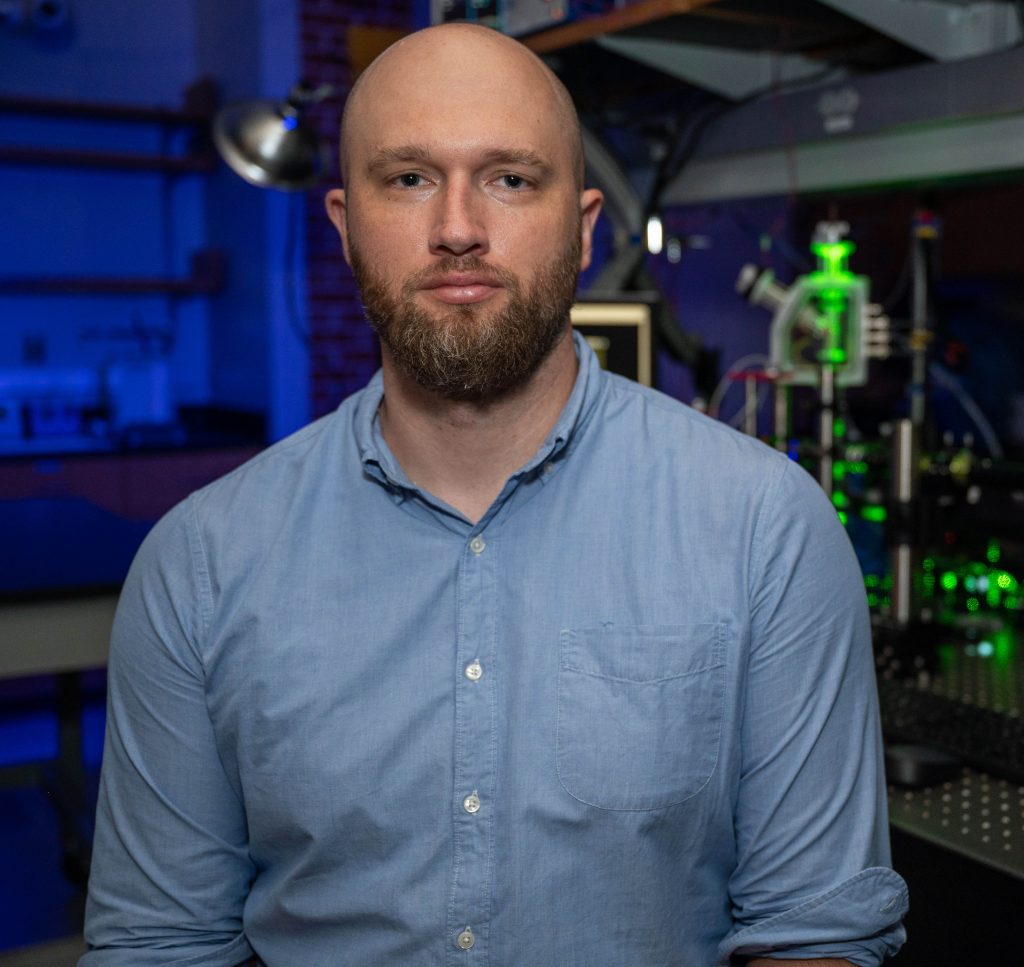Abstract:
Environmental systems, such as the hydrosphere and atmosphere, are a complex balance of chemical and physical processes that impact nearly every facet of life. In the atmosphere, aerosol particles – tiny particles of liquid and/or solid floating in the air — have a strong influence on air quality, climate, and human health. For example, the aerosol effect on climate is one of the largest sources of uncertainty in climate models. Human respiratory aerosol can also transmit certain diseases. Understanding aerosol particles is a unique challenge because they can exhibit chemical and physical properties that are not observed in bulk solution. In the first part of this talk, I will discuss efforts to understand and characterize the unique properties of aerosol particles using levitation-based techniques to understand aerosol phase state. With this approach we have demonstrated unique supramolecular effects on the phase state of aqueous aerosol particles composed of organic and inorganic compounds. The environmental and public health implications for droplet-based supramolecular chemistry will be discussed.
In the second part of the talk, we will turn discussion to the hydrosphere, where anthropogenic activities have contaminated global water sources with environmentally-persistent chemical species. One such class of “forever chemicals” are per- and poly-fluoroalkyl substances (PFAS), which are highly resistant to natural degradation processes. PFAS are used widely in a range of consumer and industrial products and their widespread use has led to a global distribution. Certain PFAS have been linked to a myriad of environmental and human health problems, so there is a need to remove these compounds from water supplies. Here, I will discuss ongoing efforts to destroy, sequester, and detect PFAS.
Along the way, I will highlight other areas of my ongoing research at Sandia National Labs, including gas-surface interactions on metal surfaces, machine-learning based climate models, and the development of analytical chemistry capabilities.
Sandia National Laboratories is a multimission laboratory managed and operated by National Technology & Engineering Solutions of Sandia, LLC, a wholly owned subsidiary of Honeywell International Inc., for the U.S. Department of Energy’s National Nuclear Security Administration under contract DE-NA0003525. This talk describes objective technical results and analysis. Any subjective views or opinions that might be expressed in the talk do not necessarily represent the views of the U.S. Department of Energy or the United States Government.



